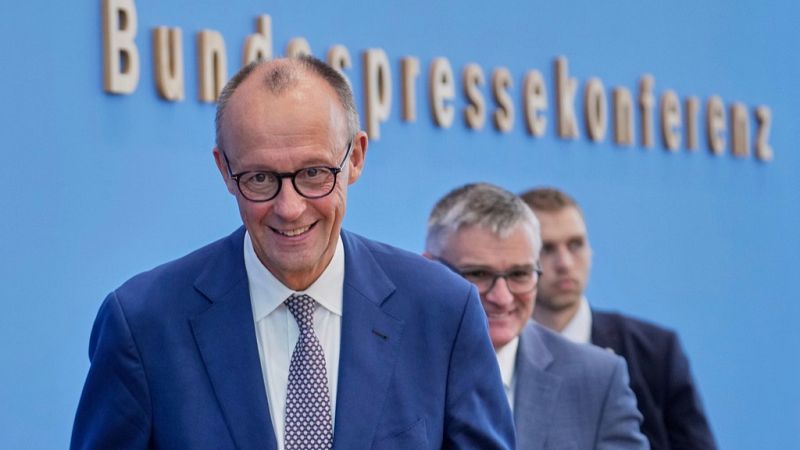
Germany's Chancellor Friedrich Merz is meeting with executives from 61 companies on Monday who have collectively pledged €631 billion of investments by 2028 to restore confidence in the country's economy.
The firms — including heavy hitters such as Deutsche Bank and Siemens — will present Merz and Finance Minister Lars Klingbeil with their "Made in Germany" initiatives.
The €631 billion includes capital investments, expenditure on research and development as well as commitments from international investments, according to the companies.
Germany's economy, once considered a powerhouse within Europe, has been in recession for two years in a row and is projected to face a tough 2025 with growth projections among the weakest in the developed world.
Siemens CEO Roland Busch clarified to Handelsblatt newspaper that the money announced by the companies was "fresh capital, but also capital that has already been committed". He added: "We need the courage for structural changes in politics, and it is imperative that big steps follow."
Firms at the meeting on Monday are expected to lobby the government for faster approvals for infrastructure projects and measures to combat Germany's labour market shortage.
The German government outlined that the meeting will focus on how to improve the investment climate and attractiveness of Germany as a business location.
Merz has made revitalising Germany's economy one of his top priorities since entering office, emphasising during his summer press conference last week that his coalition was "taking the issue of cutting red tape really seriously".
The meeting's announcement comes ahead of an expected spending surge by the German government, enabled by a recent reform to lift debt brake rules and the creation of a special fund for infrastructure investment.
According to the president of the country's Ifo Institute for Economic Research, Clemens Fuest, the initiative to promote innovation and new businesses is a good sign, as was the creation of the infrastructure fund.
Despite this, the German government has "adopted a series of measures that neither limit spending nor strengthen growth potential,” Fuest said. These include an "early-start pension plan" burdened by bureaucracy as well as the permanent reduction in value-added tax in the hospitality sector.
“Overall, the review of the German government’s economic policy reveals pros and cons,” he said.







